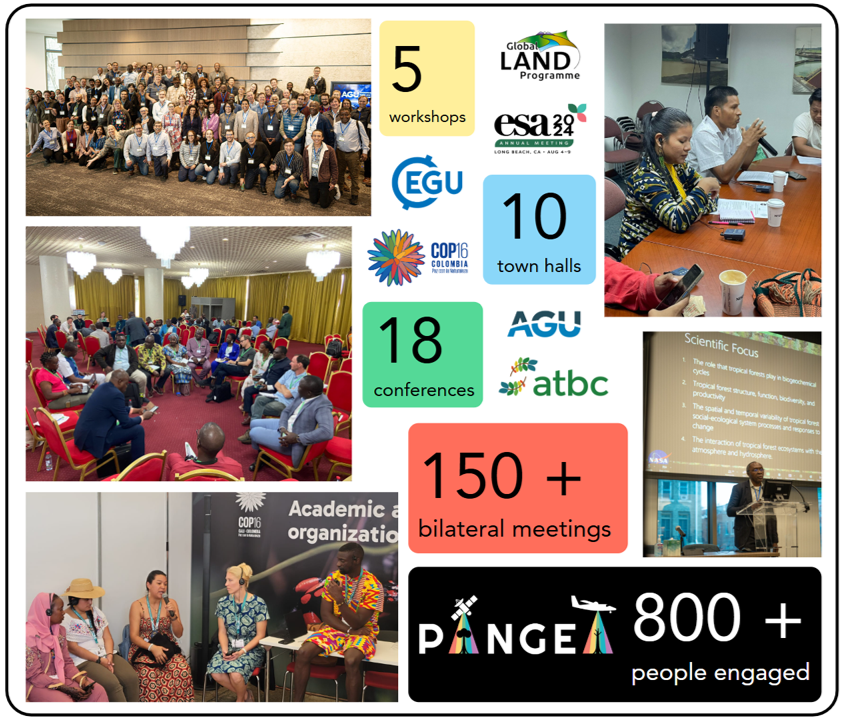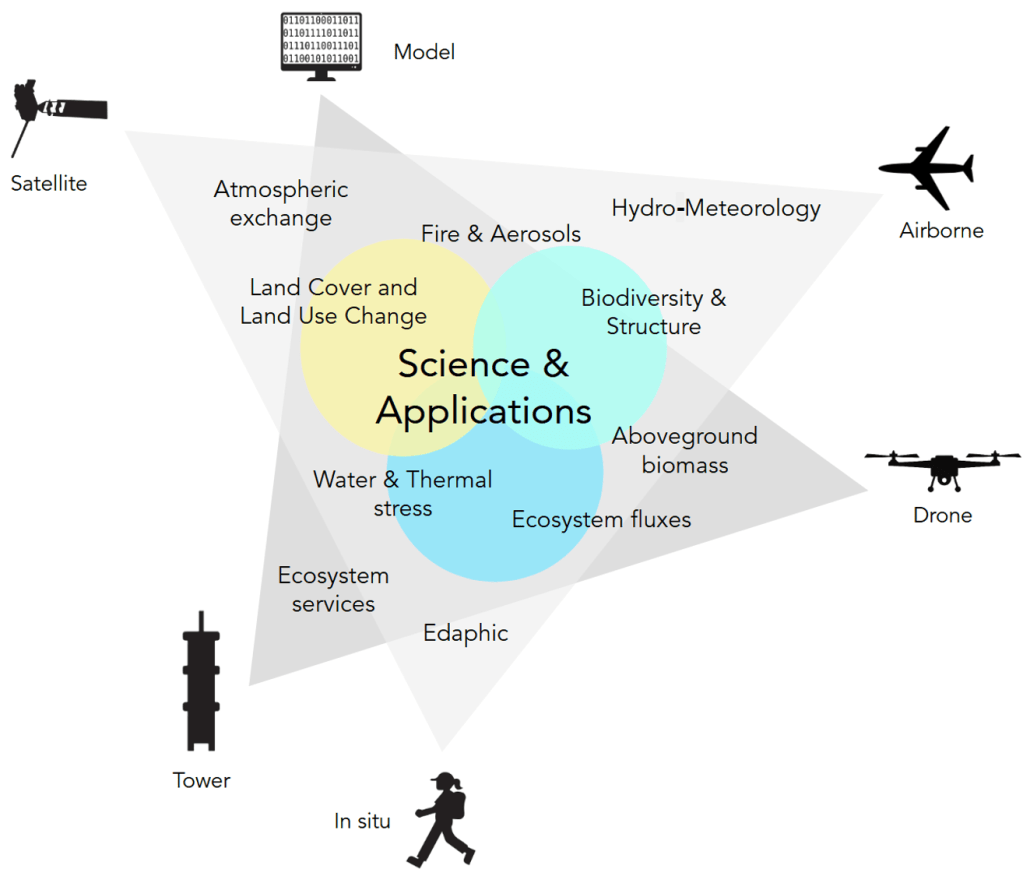PANGEA
PAN tropical investigation of bioGeochemistry and Ecological Adaptation
The PANGEA white paper is out!
Visit our News page to download the full white paper in English, French, Spanish, Portuguese, and Indonesian.
How are climate change and land-use change impacting the vulnerability and resilience of tropical forests across time and space?



The tropics are experiencing dramatic changes as a result of climate change and land-use change. Shifts in carbon flux dynamics, water cycling, and species composition are resulting in feedbacks with globally important consequences.
However, tropical forests are not a monolith. They vary enormously in terms of species diversity, climate, soils, human impact, and much more. As a result, tropical forest ecosystems will almost certainly vary in response to climate change and land-use change. Yet, these differences remain highly uncertain and poorly understood.
In 2024, we engaged over 800 people in an effort to scope a NASA decadal Terrestrial Ecology campaign in the tropics.
Two projects were selected to scope the next NASA Terrestrial Ecology campaign. In 2025, NASA will select one, both, or neither to carry out over the next decade.
If NASA selects PANGEA, they would support a 6-9 year multi-scale campaign aimed at improving our understanding of the tropics by linking ground-based measurements with NASA airborne and satellite observations and modeling capabilities. Previously funded campaigns include ABoVE, LBA, and BOREAS. Our scoping study took place throughout 2024 and resulted in a final White Paper submitted to the NASA Terrestrial Ecology Program.
The scoping of PANGEA was very much an international community effort. It would not have been possible without the contributions of an untold number of individuals. We are deeply grateful to all who have contributed their ideas, time, energy, resources, and funding to scope this urgently needed field campaign. The PANGEA leadership team is indebted to the people who contributed their ideas and suggestions to the marathon that is scoping a NASA Terrestrial Ecology Field Campaign.

